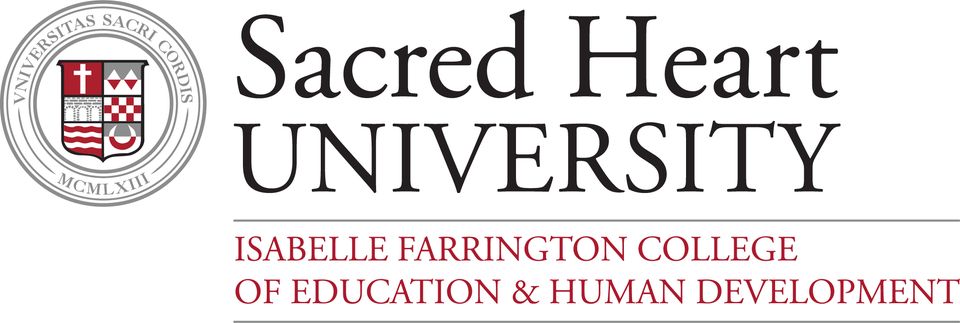Submissions from 2005
Design of Web-Based Courses for Secondary Students, Michael K. Barbour
From Telematics to Web-Based: The Progression of Distance Education in Newfoundland and Labrador, Michael K. Barbour
Perceptions of Effective Web-Based Design for Secondary School Students: A Narrative Analysis of Previously Collected Data, Michael K. Barbour
Online Writing as an Indicator of Student Performance, Michael K. Barbour and Michael A. J. Collins
Essentials of Literacy: From A Pilot Site at Davis Street School To District-Wide Intervention, Fay E. Brown and Edward T. Murray
Development and Implementation of a Plan for an Online Educational Technology Program Leading to Cross Endorsement for Connecticut Educators, Antoinette P. Bruciati
Methods for Marine Ecosystems Research through the Use of PDAs with Preservice Teachers, Antoinette P. Bruciati and Maria Lizano-DiMare
Learning Styles: A Focus upon E-Learning Practices and Pedagogy and their Implications for Designing E-Learning for Secondary School Students in Newfoundland and Labrador, Morris Cooze and Michael K. Barbour
The Challenge of Inner-City Education, Lois Libby
First Experiences with Object Lessons in Nineteenth-Century Brazil: Origins of a Progressive Pedagogy for the Brazilian Primary School, Karl M. Lorenz and Ariclê Vechia
Submissions from 2004
All for One and One for All: Designing Web-Based Courses for Students Based Upon Individual Learning Styles, Michael K. Barbour and Morris Cooze
The Role of Mediating Teachers in Newfoundland's New Model of Distance Education, Michael K. Barbour and Dennis Mulcahy
Connecticut Blueprint for a NCLB “HOUSSE” in Educational Technology, Antoinette P. Bruciati
Robotics Technologies for K-8 Educators: A Semiotic Approach for Instructional Design, Antoinette P. Bruciati
Benchmarks for Assessing the Technological Literacy of a Highly Qualified Paraprofessional, Antoinette P. Bruciati and María Lizano-DiMare
Developing Scientific Talent in Students With Special Needs: An Alternative Model for Identification, Curriculum, and Assessment, Carolyn R. Cooper, Susan M. Baum, and Terry W. Neu
Encountering Children's Literature: An Arts Approach, Jane M. Gangi
Conferencing: An Exploration into Connectivity, Content, and Community, Marc Glassman and Michael K. Barbour
A Service Learning Model: Meeting NCATE Standards Through Educational Technology, Maria Lizano-DiMare
Rui Barbosa and the Argument for Teaching the Natural Sciences in the Brazilian Primary School of the XIX Century, Karl M. Lorenz
Os Livros Didáticos de Matemática na Escola Secundaria Brasileira no Século XIX [Mathematics Textbooks and Brazilian Secondary Education in the XIX Century], Karl M. Lorenz and Ariclê Vechia
Talent Development in Science: A Unique Tale of One Student's Journey, Terry W. Neu, Susan M. Baum, and Carolyn R. Cooper
Paul Laurence Who? Invisibility and Misrepresentation in Children's Literature and Language Arts Textbooks, Mary Jackson Scroggins and Jane M. Gangi
Submissions from 2003
Online Writing as a Form of Electronic Communication in a Second Year Biology Course, Michael Barbour and Michael A. J. Collins
Mathematical Mind Journeys: Awakening Minds to Computational Fluency, Susan Austine Ebdon, Mary McGee Coakley, and Danielle S. Legnard
The College Pedro II and the Modernization of the Secondary School Curriculum in Imperial Brazil, Karl M. Lorenz
De Asilo de Órfãos a Colégio das Elites: A Gênese e a Trajetória do Imperial Collegio de Pedro II [From Orphanage to an Elite College: The Origin and Trajectory of the Imperial College Pedro II], Karl M. Lorenz and Ariclê Vechia
Chocolate Bunnies and Pork for Passover: The School and Home: A Symbiosis for Family Literacy, Karen C. Waters
Submissions from 2002
Bridging the Home and School: A Case Study of One Web-Enabled Technology, Michael K. Barbour
Electronic Messaging and Student Achievement in Second-Year Science Classes, Michael K. Barbour and Michael A. J. Collins
Submissions from 2001
Dual Differentiation: An Approach for Meeting the Curricular Needs of Gifted Students with Learning Disabilities, Susan M. Baum, Carolyn R. Cooper, and Terry W. Neu
Submissions from 2000
Barbara Reed: Visionary Storyteller and Dramatist, Jane M. Gangi
Compensation Strategies Used by High-Ability Students With Learning Disabilities Who Succeed In College, Sally M. Reis, Joan M. McGuire, and Terry W. Neu
Submissions from 1999
Parliament and the Internet: The Present and the Future, Michael K. Barbour
A Capacity to See: Memories of Aurand Harris, Jane M. Gangi
Submissions from 1998
Evaluating Online Discussion Forums: Usenet Newsgroups and the Classroom, Michael K. Barbour
Making Sense of Drama in an Electronic Age, Jane M. Gangi
Philosophical Perspectives on Dramatic Art, Jane M. Gangi
Project High Hopes Summer Institute: Curriculum for Developing Talent in Students with Special Needs, Marcia Gentry and Terry W. Neu
Programa de Ensino da Escola Secundária Brasileira: 1850-1951 [Teaching Programs of the Brazilian Secondary School: 1850-1951], Karl M. Lorenz and Ariclê Vechia
Under the Gaze: Learning to Be Black in White Society, by Jennifer Kelly (Book Review), Brian K. Perkins
Submissions from 1997
The Rhetoric of Rage: Women in Dorothy Parker, Sondra Melzer
Case Studies of High-Ability Students With Learning Disabilities Who Have Achieved, Sally M. Reis, Terry W. Neu, and Joan M. McGuire
Submissions from 1994
Public Schools Should Learn to Ski: A Systems Approach to Education, Stephen E. Rubin
Submissions from 1993
O Currículo de 1870 de Paulino de Souza [The 1870 Curriculum of Paulino de Souza], VIII Reunião da Sociedade Brasileira de Pesquisa Histórica , Florianópolis, Brasil (1993), Karl M. Lorenz and Ariclê Vechia
Submissions from 1992
O Currículo de 1899 de Epitácio Pessoa [The 1899 Curriculum of Epitácio Pessoa], Karl M. Lorenz and Ariclê Vechia
Submissions from 1991
Currículos de 1892 e de 1894: Tentativas de Acomodação do Currículo de 1890 de Benjamin Constant [The Curricula of 1892 and 1894: Attempts at Accommodating to the Curriculum of 1890 of Benjamin Constant], Karl M. Lorenz and Ariclê Vechia
Historia do Currículo da Escola Secundária Brasileira, 1838-1971: Uma Pesquisa em Curso [History of the Curriculum of the Brazilian Secondary School, 1838-1971: Research in Progress], Karl M. Lorenz and Ariclê Vechia
Submissions from 1990
Analise Quantitativa do Currículo Escolar [Quantitative Analysis of the School Curriclum], Karl M. Lorenz


